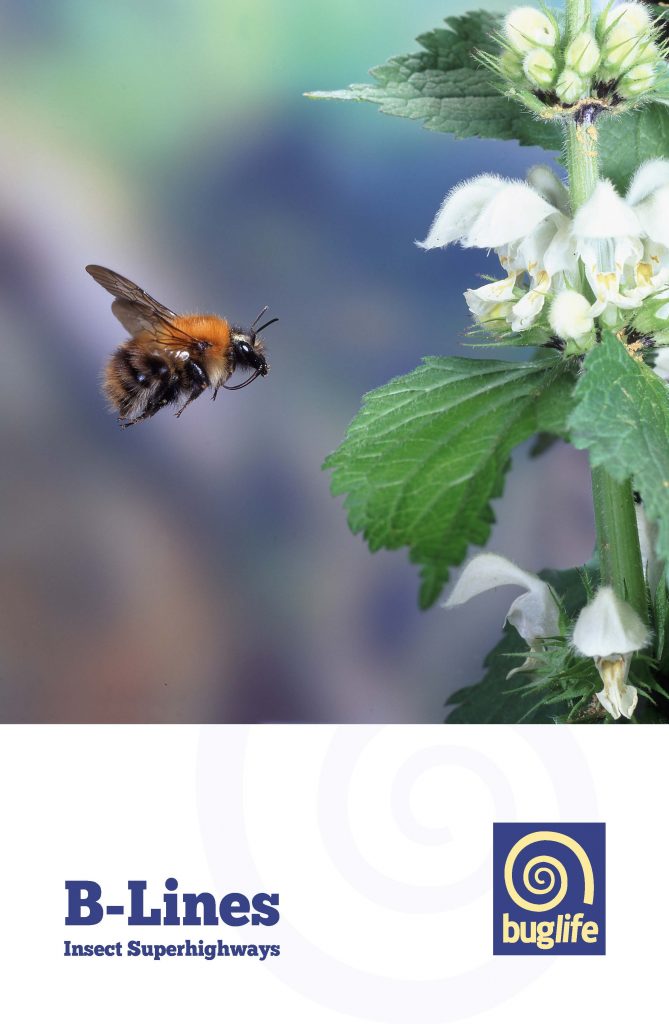
Today Steve Backshall has helped Buglife to launch a new plan to help the UK’s pollinators at the virtual conference ‘B-Lines: insect superhighways’.
B-Lines is a ground-breaking, landscape-scale solution to reverse the decline in bees, butterflies and other pollinating insects. The B-Lines network is designed to reconnect our landscapes, enabling pollinators and other wildlife to move freely, and supporting nature’s recovery.
Our pollinating insects are in trouble. In recent years it has become apparent that pollinator populations are fragile, and if not cared for they can become damaged, depleted and cease to function effectively.
Recent insect declines are part of a long-term loss of diversity and abundance caused by habitat loss and fragmentation. Many of the best wildlife sites are now isolated, and a lack of connected habitat across landscapes means that species are marooned on islands of suitable habitat, unable to move in response to environmental pressures such as climate change, and vulnerable to local extinction. Habitats must be made bigger, better and, crucially, more joined up. Restoring networks for insects and other wildlife is now an urgent priority.
B-Lines is a network of insect pathways connecting the best remaining wildflower-rich habitats across the country. This network will support the recovery of threatened species and restore abundant populations of insects that are essential for pollinating our crops and wildflowers. B-Lines are designed to help pollinators, they will help a huge range of other wildlife too.
Today Buglife has launched the complete B-Lines map for the UK, developed over nearly ten years with partners and stakeholders. Over 750 delegates have come together to celebrate the completed map and the delivery of the first 1,500 hectares of B-Lines habitat across the UK. The virtual conference will look at how partners everywhere can work together to restore and create thousands more hectares of wildflower-rich habitat such as grassland and heathland.
Buglife’s Jamie Robins commented. “It is fantastic to be able to launch our B-Lines map today, hundreds of people have come together to create this plan to help our pollinators. But, this is not just about a map, we are also celebrating the creation of over 1,500 hectares of wildflower habitat along the B-lines – delivered by a great number of organisations and individuals all working together for a shared endeavour. Whether you are a farmer, forester, local community group or business you can help to reconnect our landscape – visit our website to find out how you can add to our B-Lines network.”


